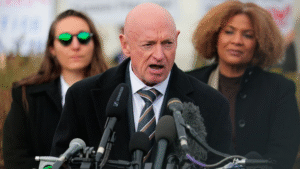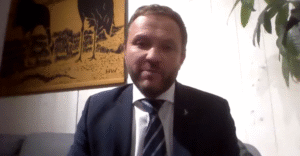In a closely contested race, conservative nationalist Karol Nawrocki has emerged victorious in Poland’s 2025 presidential election, securing 50.89% of the vote against liberal opponent Rafał Trzaskowski’s 49.11%. This outcome marks a significant shift in Poland’s political landscape, with potential ramifications for its relationship with the European Union and domestic policy directions.
A Narrow Victory Reflecting Deep Polarization
The election results underscore the deep divisions within Polish society. Nawrocki’s support base primarily consisted of rural voters and those favoring traditional values, while Trzaskowski found backing among urban populations and younger demographics. The high voter turnout of 71.7% indicates the electorate’s engagement and the contentious nature of the race.
Nawrocki’s campaign focused on nationalistic themes, emphasizing Polish sovereignty and skepticism towards EU integration. His victory suggests a resurgence of right-wing sentiments and a challenge to the centrist government’s pro-European stance.
Implications for Domestic Policy and Governance
With Nawrocki’s ascent to the presidency, Prime Minister Donald Tusk’s centrist government may face significant hurdles in implementing its agenda. The president holds veto power over legislation, and Nawrocki is expected to oppose liberal initiatives, particularly those aimed at reversing judicial reforms enacted by the previous Law and Justice (PiS) administration.
This potential for political gridlock could stall efforts to align Poland’s judiciary with EU standards, a key objective of Tusk’s government. The lack of a parliamentary supermajority to override presidential vetoes further complicates the legislative process.
Foreign Policy Outlook: EU Relations and Transatlantic Ties
Nawrocki’s presidency may herald a shift in Poland’s foreign policy, particularly concerning its relationship with the European Union. His nationalist stance and alignment with figures like Hungary’s Viktor Orban suggest a more confrontational approach towards Brussels.
Conversely, Nawrocki has expressed support for strengthening ties with the United States, mirroring policies of former U.S. President Donald Trump, who endorsed his candidacy. This transatlantic pivot could redefine Poland’s role within the EU and its broader geopolitical positioning.
Controversies Surrounding Nawrocki’s Candidacy
Despite his electoral success, Nawrocki’s campaign was marred by controversies. Allegations of past misconduct, including associations with underworld figures and involvement in violent incidents, raised questions about his suitability for the presidency.
Critics argue that these issues reflect broader concerns about transparency and accountability in Polish politics. However, Nawrocki’s supporters dismissed the allegations as politically motivated, emphasizing his commitment to national values and sovereignty.
Broader European Context and Future Prospects
Nawrocki’s victory resonates beyond Poland’s borders, signaling a potential resurgence of nationalist movements across Europe. His alignment with right-wing leaders and skepticism towards EU integration may embolden similar factions in neighboring countries.
Domestically, the new administration faces the challenge of navigating a polarized society and potential legislative stalemates. The coming years will test the resilience of Poland’s democratic institutions and its commitment to balancing national interests with international obligations.
Conclusion
Karol Nawrocki’s ascent to the Polish presidency marks a pivotal moment in the nation’s political trajectory. His nationalist agenda and the anticipated friction with the centrist government underscore the complexities of governance in a deeply divided society. As Poland stands at this crossroads, the decisions made in the coming months will shape its domestic policies and international relationships for years to come.
Subscribe to trusted news sites like USnewsSphere.com for continuous updates.
[USnewsSphere.com / reu.]





